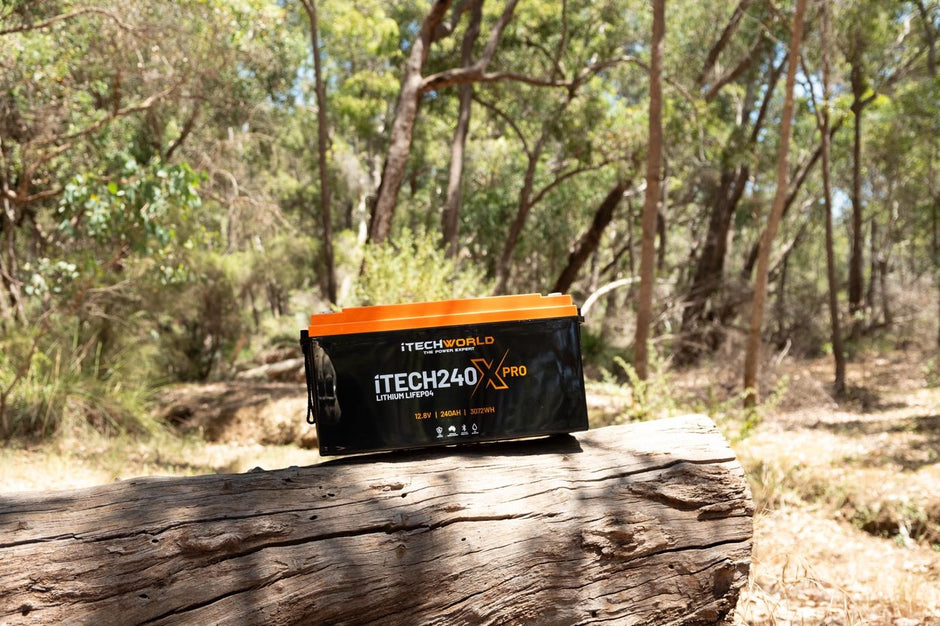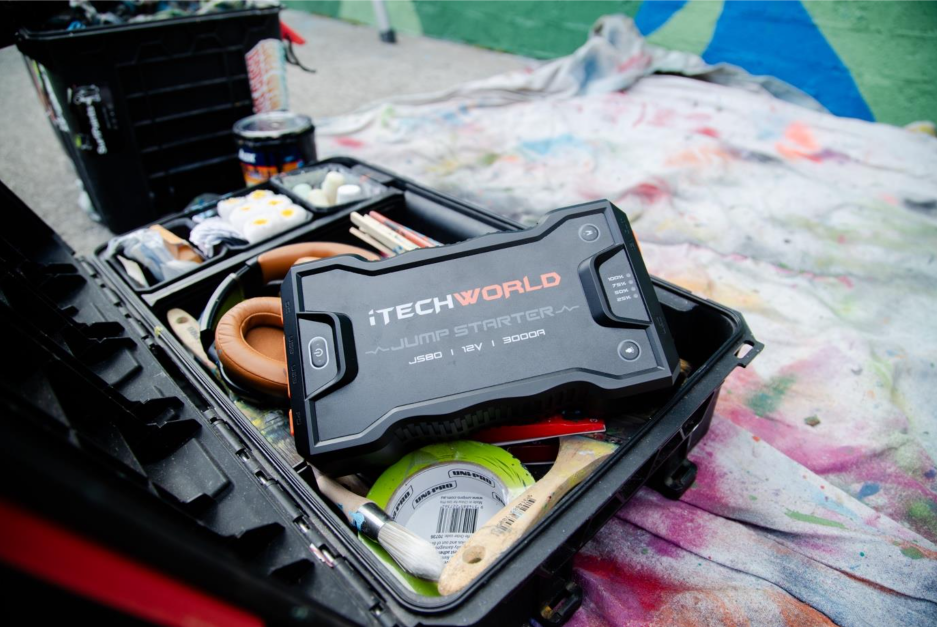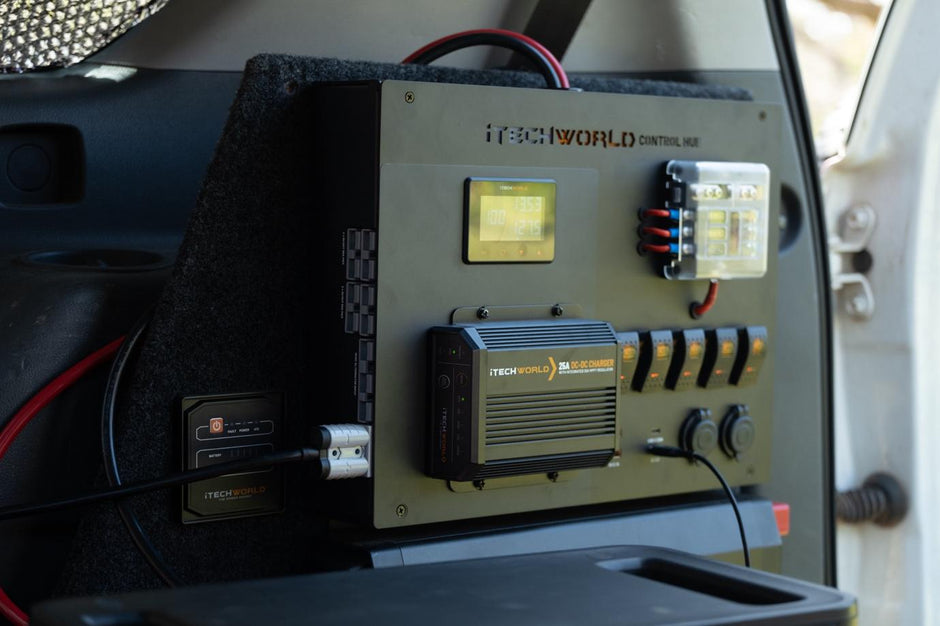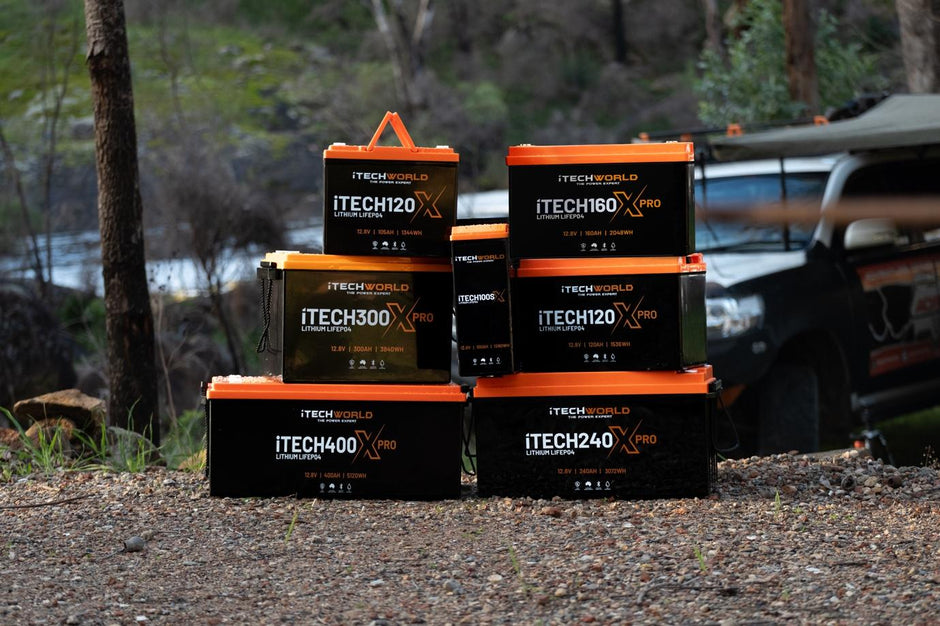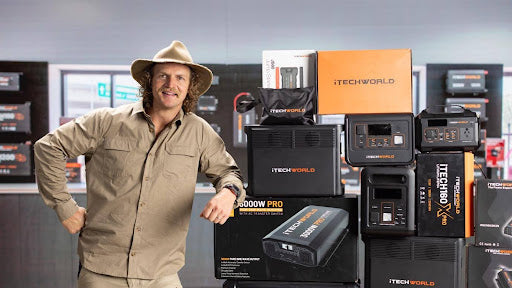How much solar power do I need?
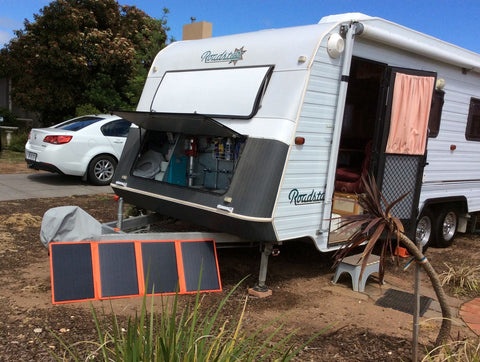
So you want to set your rig up for Solar but you are not sure what size of set up you need? This blog is designed to give you the tools needed to be able to work out exactly what are you are drawing from your rig's batteries and what type of solar set up you need. Knowledge is key when setting up your rig for solar so the more information you have on each and every one of those home comforts devices you plan to take away with you the better. If anyone has a question pop it in the comment section below. I will try my best to answer everyone.

How to work out Watts, Amps and Volts
A larger solar panel will collect more energy in less time, but just how big does the solar panel need to be?
The power consumption of appliances is usually given in Watts. To calculate the energy you will use over time, just multiply the power consumption by the hours of use. For example:
10 watt device used over 3 hours equals 10 x 3 = 30 Watt
How to convert Amps to Watts
The energy in Watts is equal to the electric charge in Amps times the voltage in volts:
Watts = Amps × Volts
Example
If your device doesn’t have the Watts labelled on it, then it should at least have the input Volts i.e. 240V and the Amps AC it draws such as 240V – 1.5A. You can then use the equation Watts Volts x Amps so 240v x 1.5amps = 360 Watts.
How to convert Watts to Amps
The electric charge in Amps is equal to the energy in Watts divided by the voltage in volts (V):
Amps = Watts / Volts
Example
Find the electric charge in Amps when the energy consumption is 300 watts and the voltage is 240 volts.
300 Watts / 240 volts = 1.25 Amps
Do I need a battery?

Solar panels are commonly used to charge a battery – not to charge a device directly. There are a couple of reasons for having batteries. Solar panels might not generate enough wattage to directly power an appliance, but they can build up a higher wattage via a battery. Secondly, a battery can regulate the power going in to the appliance at a constant rate. When solar panels are charging a battery it is usually at a varying rate which could harm an appliance if not regulated.
Battery capacity is measured in Amp Hours (e.g. 120Ah). You need to convert this to Watt Hours by multiplying the Ah figure by the battery voltage (e.g. 12V) – see calculations above.
AH refers to amp hours. This rating is usually found on deep cycle batteries. If a battery is rated at 100 amp hours it should deliver 5 amps of power for 20 hours or 20 amps of power for 5 hours.
When choosing a battery, keep in mind the equipment you will be powering and the time in which they will be running. Theoretically a 100Ah battery can deliver 5 amps over a 20 hour period (and so on). Taking into account the average small campsite - with a small 45W fridge running for 6 hours, 3 hours of 15W lighting and 20W of other electronic equipment - the minimum consumption to be expected is 335W. Take this wattage and divide it by the voltage, 12V, gives 28Ah. With the aim of leaving 50% in the battery brings the requirement to 56 Ah per day.
It's also a great idea to try and buy appliances with low amp draw like our range of iFROST camping fridge freezers.
A smarter battery setup would be to use an iTECH120 120Ah lithium battery. This new type of battery is a fraction of the weight of old style AGM batteries. AGM batteries usually weigh 35kg but and iTECH120 battery weighs just 13kg. You can also use more of the battery capacity in an iTECH120 - 80% which means its usable Amp Hour rating is similar to a 200 Amp Hour AGM. View our 12v lithium battery range. They are Australian designed and built for our harsh environment.
What size solar panel do I need?

Solar Panels power generation is commonly given in Watts e.g. 120 Watts. To calculate the energy it can supply the battery with, divide the Watts by the Voltage of the Solar Panel.
120 Watts / 18v = 6.6 Amps
Please note that Solar Panels are not 12v, I repeat Solar Panels are not 12v. Any one who works out the Amps of a solar panels using 12v as the voltage calculation does not understand solar or has been misinformed. All solar panel voltages should be marked in the item description of our website or on the unit itself.
The size of the solar panel required to charge a lithium battery depends on the lithium battery's capacity.
What size solar panel do I need to charge a 100AH battery?
100AH Lithium Battery x 12V = 1200WH
1200WH / 8H = 150W of solar panels.
What size solar panel will charge a 120AH battery?
To calculate the solar panel required to charge a 120AH lithium battery, use the following calculation:
120AH Lithium Battery x 12V = 1440WH
1440WH / 8H = 180W of solar panels.
Which solar panel size to charge a 200AH battery?
If you have a large 200AH lithium battery, the calculation would be as follows:
200AH Lithium Battery x 12V = 2400WH
1440WH / 8H = 300W of solar panels.
My rule of thumb with solar is that you can never have too much; there will be times of the year when you will not get 8 hours of sunlight, there will be overcast days and other factors that prevent you from getting a full day of solar.
Using the above calculation will give you a rough guide as to what you need at a minimum; however, it is recommended that you always have more than the minimum.
Another consideration is how much of your battery power do you use in a 24 hour period, if you are only using 50% of the capacity then your solar requirements reduce by 50%.
Click the following link to view iTechworld’s solar blanket range designed specifically to charge lithium batteries the most effective way.
Inverters

The power inverter converts your storage battery power into the 240 volts AC that runs your appliances. Unless you only run 12 volt DC appliances you will need a power inverter to supply your AC.
There are 2 types of Inverters
Pure sine wave and Modified sine wave.
The Pure Sine Wave matches the power to that of which you get from your Electricity Supplier, its clean and you can run any appliances safely even sensitive equipment.
The Modified sine wave used to be considered a dirty power but some aren't as bad as they used to be, you can use this inverter type for things that don't have sensitive electronics for example fridges, cookers, pumps, You may have to be careful with some appliances such as laptops and TVs so check first.
Check out the iTechworld range of inverters HERE
Charge Controllers/Regulators

All Solar Panels 30 watts and above need a Solar Charge Controller/Regulator. A Charge Controller/Regulator is necessary to protect the batteries from over charging and supply them with the proper amount of energy to promote long battery life. If the charge isn’t regulated it can have a damaging effect on the battery being charged.
Check out the iTechworld range of Charge Controllers/Regulators HERE
Article author
Ian
ian@itechworld.com.au
Save



